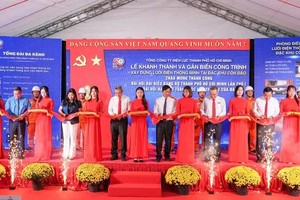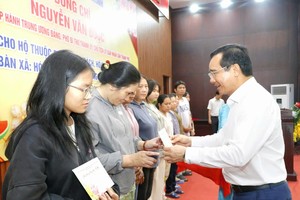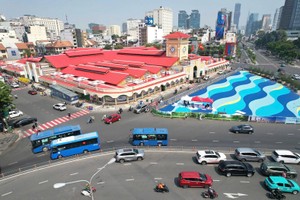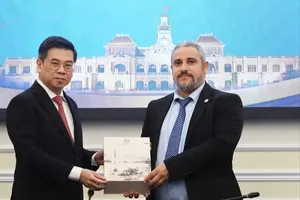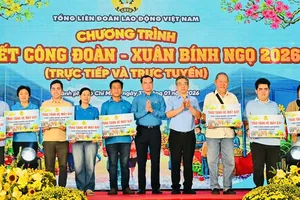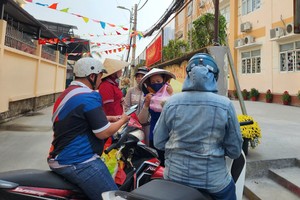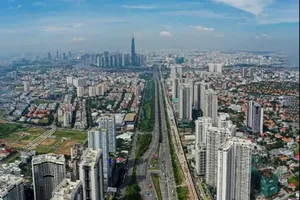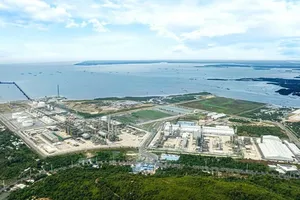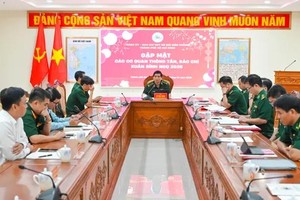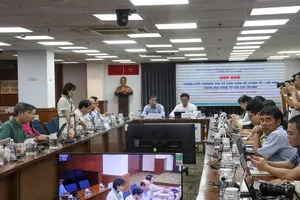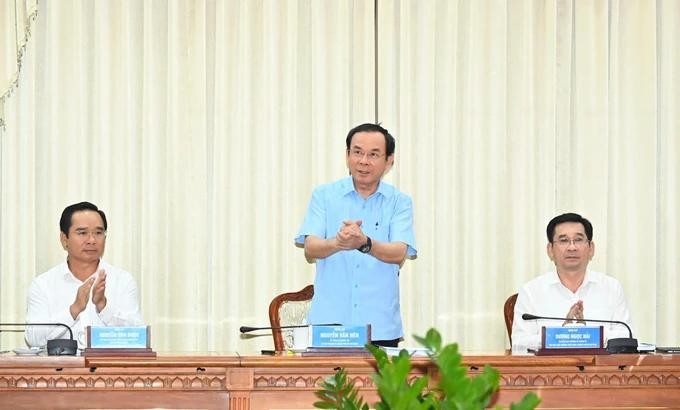
That was heard at this afternoon’s meeting on the socio-economic situation and results in the first quarter; tasks and solutions for the second quarter of 2025 held by the Ho Chi Minh City People's Committee. The meeting was convened with the participation of Ho Chi Minh City Party Secretary Nguyen Van Nen.
Director of the Ho Chi Minh City Department of Finance Le Thi Huynh Mai reported that the southern largest city's economy maintained a robust recovery in the first quarter of 2025, with a gross regional domestic product (GRDP) exceeding 7.51 percent compared to the same period last year. This growth rate represents the highest first-quarter increase since 2020.
Growth comes from the upturn in most regions. Of which, services increased by 8.72 percent, industry and construction increased by 5.94 percent, agriculture, forestry and fishery maintained a slight increase of 0.27 percent.
The city's robust economic recovery is evident, particularly in its thriving service and industrial sectors.
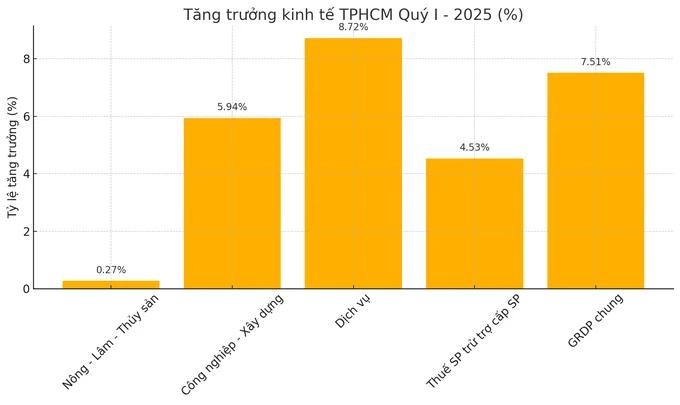
The tourism industry recorded remarkable growth with total revenue in the first quarter reaching more than VND56,600 billion, up nearly 27 percent. The city welcomed 1.64 million international visitors and 8.57 million domestic visitors. This outcome is attributed to strategic promotional and advertising campaigns, coupled with the introduction of innovative tourism products, which have effectively maintained the destination's attractiveness.
The industrial production index surged 6.8 percent in the first quarter. Four key industries alone saw a 6.4 percent uptick. The processing and manufacturing sectors rebounded robustly, with pharmaceuticals, rubber, and plastics growing over 15 percent.
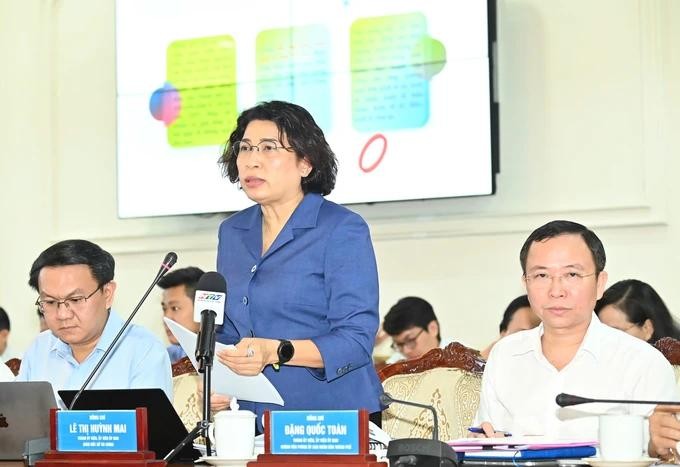
Furthermore, electronic products increased 15.8 percent, while mechanics and food maintained their growth momentum. The agricultural sector was stable with production value increasing by 0.8 percent, of which aquaculture increased by 4.4 percent thanks to improved aquaculture output.
Foreign direct investment (FDI) has shown strong growth, reaching over $567 million—an increase of 23.4 percent. The municipal government authorized 267 new foreign direct investment (FDI) projects and approved 435 transactions involving capital contributions and share acquisitions.
However, domestic enterprises continue to face significant challenges. The number of newly established businesses declined by nearly 40 percent, while the number of temporarily suspended enterprises is on the rise, highlighting ongoing market pressures and capital constraints for the small and medium-sized enterprise sector.
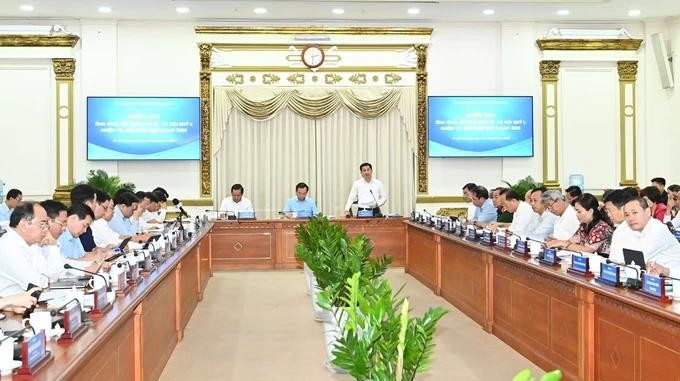
Despite an early focus on public investment, the disbursement rate remains low, reaching only 5.4 percent of the planned target, with over VND4,556 billion disbursed in the first quarter. This remains a critical bottleneck that must be addressed to enhance public investment’s role in driving economic growth.
State budget revenue for the first quarter is estimated at over VND151,000 billion, representing 29 percent of the annual target and reflecting a nearly 8 percent increase year-over-year. Domestic revenue grew by more than 9 percent, while revenue from imports and exports rose by 2.33 percent.
Notably, development investment expenditure surged by 65 percent to exceed VND3,000 billion, demonstrating strong efforts to accelerate public investment.
Financial and banking activities are stable, interest rates continue to decrease, providing good support for production and business.
The stock market is showing strong momentum, with the VN-Index closing March at approximately 1,317 points—an increase of 4 percent compared to the end of 2024. This upward trend reflects growing investor confidence and positive market sentiment.
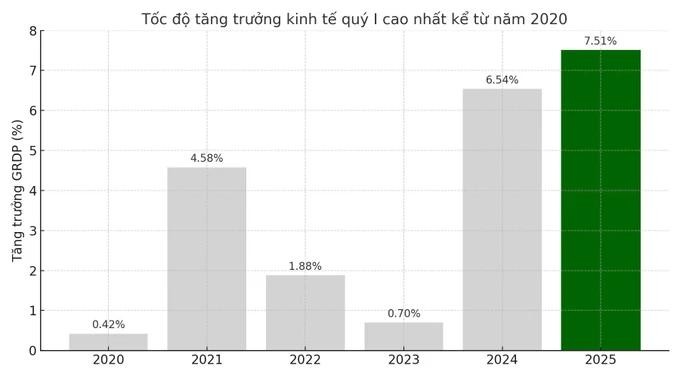
Meanwhile, the education sector is making significant strides in executing the school year plan. Ho Chi Minh City successfully organized excellent student and teacher competitions while preparing for the national science and technology contest. The city is also fast-tracking school construction, aiming to add 4,500 new classrooms.
Additionally, efforts to advance the smart education project and sustain tuition support initiatives are helping ease financial pressures on students and their families.
The health sector has demonstrated robust epidemic control, effectively containing potential large-scale outbreaks through strategic interventions. Proactive public health initiatives have been implemented to mitigate the spread of prevalent infectious diseases, including measles, seasonal influenza, and dengue fever.
In parallel, the city has pursued a comprehensive strategy of investing in the enhancement of primary healthcare quality and the development of the pharmaceutical industry.
In the coming time, Ho Chi Minh City will continue to promote social investment, mobilize all resources for development, focus on the private economy, consider the private economy as one of the most important driving forces for growth, increase labor productivity and competitiveness of the economy.
In 2025, Ho Chi Minh City will prioritize the effective implementation of its plan to mobilize social resources for investment in the city's infrastructure development. The goal is to secure over VND620,000 billion in social investment capital.
Ho Chi Minh City will synchronously implement tasks and solutions, with the highest determination to disburse public investment to reach over 95 percent of the assigned capital plan by the end of the year. The city is determined to promote administrative reform, shorten at least 30 percent of the time to process procedures for businesses, creating an open investment environment to attract new projects.
Ho Chi Minh City is enforcing strict administrative discipline among officials and civil servants, driving significant improvements in work ethic and professionalism. Authorities are ensuring that tasks are handled proactively, in line with assigned responsibilities, with the highest sense of accountability.
The city remains resolute in preventing any instances of negligence or evasion of responsibility. Additionally, strict measures are in place to promptly detect and address misconduct, including harassment, corruption, and other negative behaviors. These efforts aim to reinforce public, business, and investor confidence in the administration.
